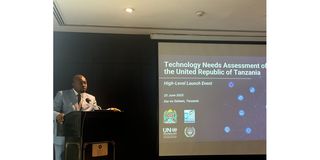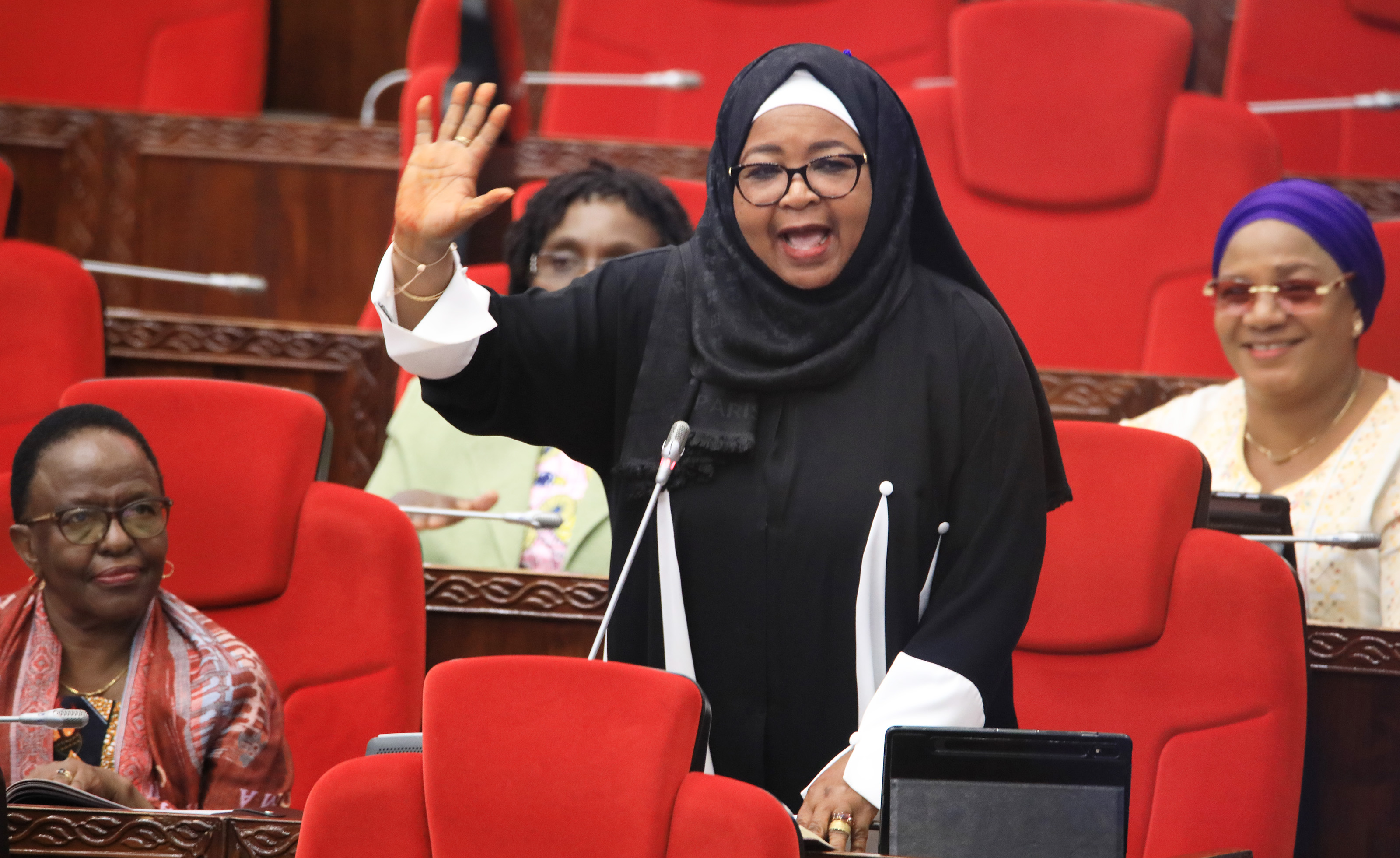Prime
UN report: Why Tanzania’s future depends on tech in the farms and the ocean

What you need to know:
- The TNA calls for Marine Electronic Monitoring Systems, Vessel Monitoring Systems (VMS), and Automatic Identification Systems to enforce regulations and protect marine ecosystems
Dar es Salaam. As climate change disrupts weather patterns, fish stocks dwindle, and youth unemployment rises, a new report shows that the country’s best hope for inclusive and resilient growth lies in transforming its farms and ocean economy through science and innovation.
The newly launched Technology Needs Assessment (TNA) Summary 2025, coordinated by the United Nations Technology Bank for Least Developed Countries (UNTB), positions agriculture and the blue economy at the heart of Tanzania’s technological transformation.
Speaking during the launch of the report on June 26, the director of the UN Technology Bank, Mr Deodat Maharaj, emphasised that although least developed countries (LDCs) like Tanzania have recorded positive economic growth, it still not good enough.
“Yes, economic growth in LDCs is happening, but it’s not good enough. We must be bolder in leveraging technology to transform our economies and societies,” he said.
He said that meeting long-term development goals such as the Vision 2050 requires action now.
Mr Maharaj reminded participants that agriculture must remain central, as it is still the foundational sector for most Tanzanians, and the effective utilization of the immense opportunities available in the blue economy.
Echoing those remarks, the minister of Blue Economy in the Zanzibar government, Mr Shaaban Ali Othman, described the TNA as a milestone in Tanzania’s quest for inclusive and sustainable transformation.
“This initiative is both timely and relevant as it aligns with our broader mission to drive structural transformation, generate decent employment, and enhance competitiveness in line with our national goals,” he said.
He stressed that Tanzania stands at a critical juncture, especially given its vast marine resources.
He noted, “We are rich in coastal and marine assets, but unlocking their full potential requires us to embrace the right technologies. From fisheries and aquaculture to ocean-based energy and marine tourism, the blue economy is a strategic frontier for Tanzania’s growth.”
Mr Othman also urged for wide collaboration across ministries, sectors, and partners:
“Let us be clear. No real progress will happen unless we invest in infrastructure, skills, and institutional capacity. This is a call to action for governments, the private sector, and development partners to work together and turn these findings into reality,” he said.
Despite urban growth, agriculture remains the backbone of Tanzania’s economy, contributing near 26 percent of GDP and employing nearly 70 percent of the population.
Yet the sector is increasingly vulnerable to climate change, low productivity, and limited access to innovation.
The TNA recommends a shift toward climate-smart, data-driven farming—deploying remote sensing for crop monitoring, mobile platforms for weather alerts, and smart irrigation systems.
Along Tanzania’s 1,424-kilometre coastline, fishing and marine livelihoods face mounting threats from overfishing, illegal trawlers, and climate impacts.
The TNA calls for Marine Electronic Monitoring Systems (MEMS), Vessel Monitoring Systems (VMS), and Automatic Identification Systems (AIS) to enforce regulations and protect marine ecosystems.
It also advocates for tissue culture technologies to improve seaweed farming—an economic mainstay for thousands of women in Zanzibar.
Deputy permanent secretary in the ministry of Livestock and Fisheries, Dr Edwin Mhede, emphasized the need for a balanced approach that builds on what Tanzania already has.
“In pushing forward, we must recognize our existing capabilities,” he said.
Dr Mhede said, “Let’s take stock of what’s already available—local expertise, existing systems, and traditional knowledge—and strengthen those foundations with modern tools.”
Nearly 47 percent of Tanzanians are under the age of 20, making digital skills and innovation central to long-term success.
The TNA calls for a harmonized science, technology, and innovation policies and youth-focused digital training and education.
The report has also recommended support for startups in climate resilience and agro-processing and a stronger collaboration between research, government, and private industry.



